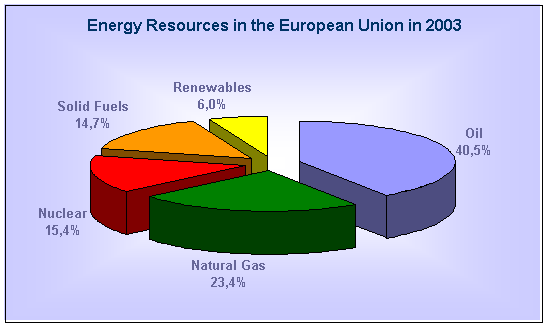|
|
|
|
|
|
“Sustainable development is the development that meets the needs of the people today without compromising the ability of future generations to meet their own needs”.
Sustainable development requires dealing with economic, social and environmental policies in a mutually reinforcing way. Failure to reverse trends that threaten future quality of life will steeply increase the costs to society or make those trends irreversible.
Clear and stable objectives for sustainable development will present significant economic opportunities. This has the potential to unleash a new wave of technological innovation and investment, generating growth and employment. Industries are strongly suggested and should take part in the development and wider use of new environmentally friendly technologies in sectors such as energy and transport.
The sustainable development approach is being taken more fully into account in policy-making nowadays especially among the members of the European Union. The preservation of our natural environment though, should not only be a subject in political agendas but a common goal for each human being and each active citizen.
Facts for Europe
Although sustainable policies are starting to develop, the growth in the EU is still not a sustainable one. In the environmental sphere, European Union’s Member States’ performance is generally inadequate. This shows a lack of awareness of the fact that growth may harm the environment and prove counter-productive in the medium and long term.
On one hand, more efficient use of natural resources contributes to the economy’s productivity at the same time as reducing environmental degradation; reducing air pollution and noise can avoid significant impacts on health; reducing transport congestion reduces lost time and therefore costs for both individuals and business. On the other hand, a more dynamic economy may lead to a better environment, if the faster turnover of the capital stock associated with more rapid growth results in more widespread diffusion of new technologies, which often are more energy efficient and thus less polluting than the equipment they replace.
During the 1990s the European Union’s greenhouse gas emissions fell by 3.5%, or almost half of the Union’s commitment to reduce its emissions for the period 2008-2012 by 8% compared with their 1990 level. However, this positive trend has been reversed in the past three years as you can see in the graph below
Improvements in the energy efficiency of the Union economy resulted in a decreased energy intensity of 11% during the 1990s. While much of this performance can be ascribed to exceptional events, such as German reunification, all Member States have reduced or maintained their energy intensity over the period. The association of the economic “catching up” process with an equivalent increase of energy needs does not seem to be inevitable, however, as is shown by the case of Ireland, where the strong economic growth of recent years has gone hand-in-hand with sizeable improvements in energy intensity. Despite these positive performances, during the 1990s total energy consumption continued to grow by an average rate of 1% annually.
Moreover, the share of renewable energy remains low at around 6% as illustrated in the picture below. Latest projections clearly indicate that unless additional policy measures are taken, the EU will fail to meet its indicative target of 12% by 2010. It is also unlikely that the EU will be able to meet its target of generating 22% of gross electricity consumption from renewable sources by 2010.

Concluding
It is quite clear from the numbers mentioned above that the EU is highly unlikely to meet its emission reduction or renewable penetration objectives for years to come. More bold and radical policies might be needed to change that trend. Furthermore, more projects for sustainable development and industry involvement are needed. Our project is one of those. We hope that projects like ours will shortly find a place in government policies and will help the EU, if not meeting its direct objectives, at least to find a way towards a more sustainable future.
References:
[1] Commission of the European Communities, “Report from the Commission to the Spring European Council, Delivering Lisbon reforms for the Enlarged Union.
[2] Commission of the European Communities, Commission Staff Working Paper, “Consultation paper for the preparation of a European Union Strategy for Sustainable Development”
[3] Commission of the European Communities, “A European Strategy for Sustainable Development”